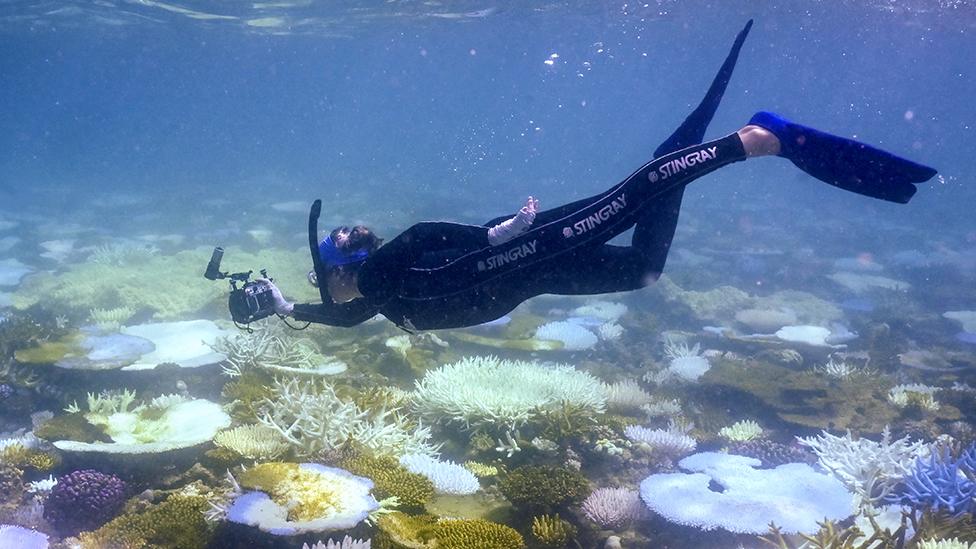Warning as creatures with 'painful sting' wash up on beaches
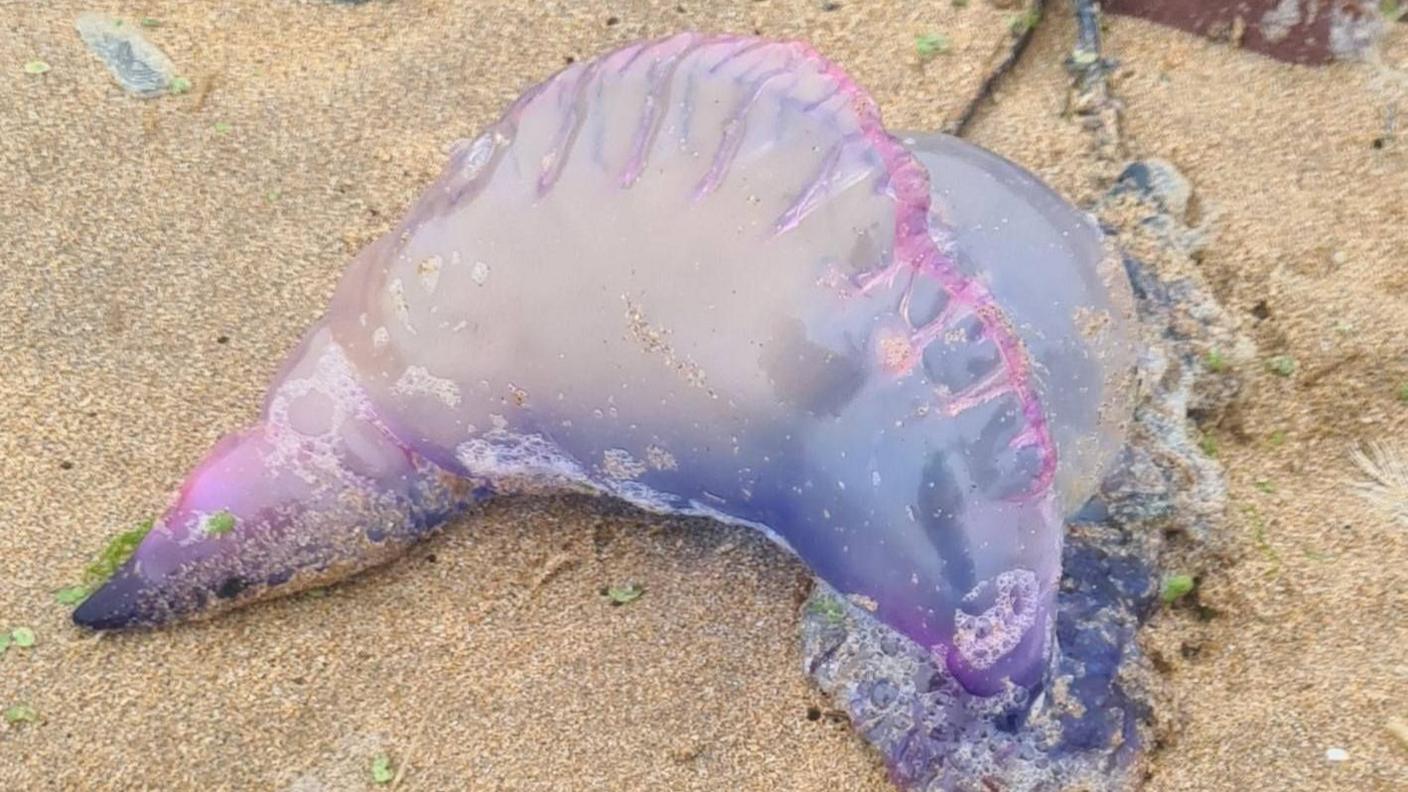
Man o' wars have a distinctive gas filled bladder which allows them to float
- Published
A warning has been issued following several sightings of Portugese man o' wars washed up on popular beaches.
The marine animal, which looks like a jellyfish but is in fact a siphonophore, is known for its painful sting and long tentacles.
They are carried by currents from warmer Atlantic waters to UK shores, particularly after storms, and have been spotted on two beaches in Pembrokeshire as well as another on Anglesey.
Rhosneigr Coastguard said beachgoers should "avoid touching them" at all costs, adding that they could sting even when dead.
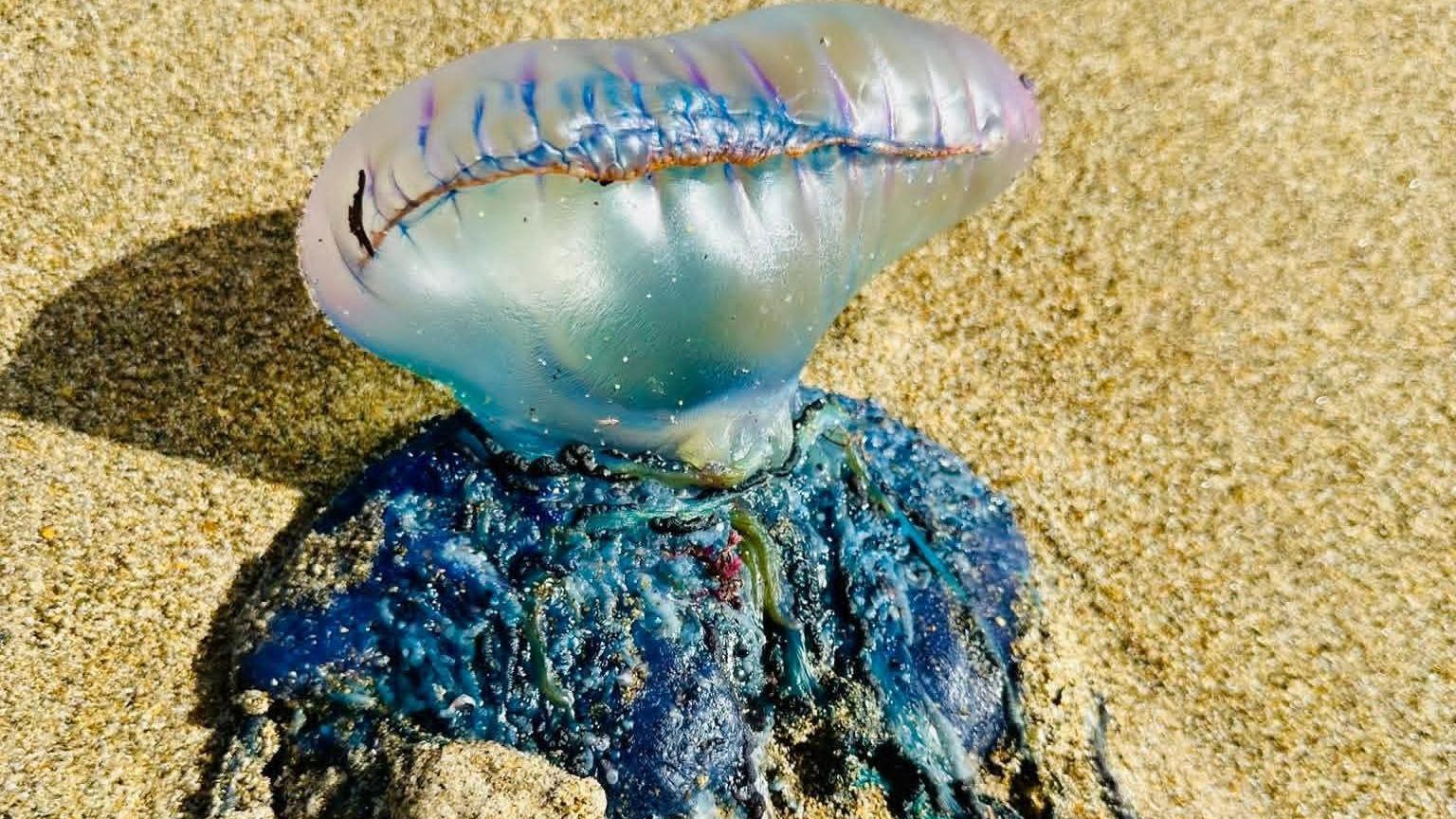
A public warning has been issued by the coastguard to stay away from the creatures, which look like jellyfish
The most prominent physical feature of the Portuguese man o' war is its pneumatophore- a gas-filled bladder on its top that looks like the inflated sail of a ship.
It serves as both a float and a sail, allowing the animal to drift on the surface of the water, with its tentacles spreading as long as 10ft (3m).
Melissa Brown was out walking her dogs on Freshwater West, Pembrokeshire, on Thursday when she spotted a man o' war and snapped a photo "to make people aware that they were being washed in".
"I had never seen one in real life, so had to go and have a look, but I knew what it was and that it can still sting when washed up, so kept the dogs away," she said.
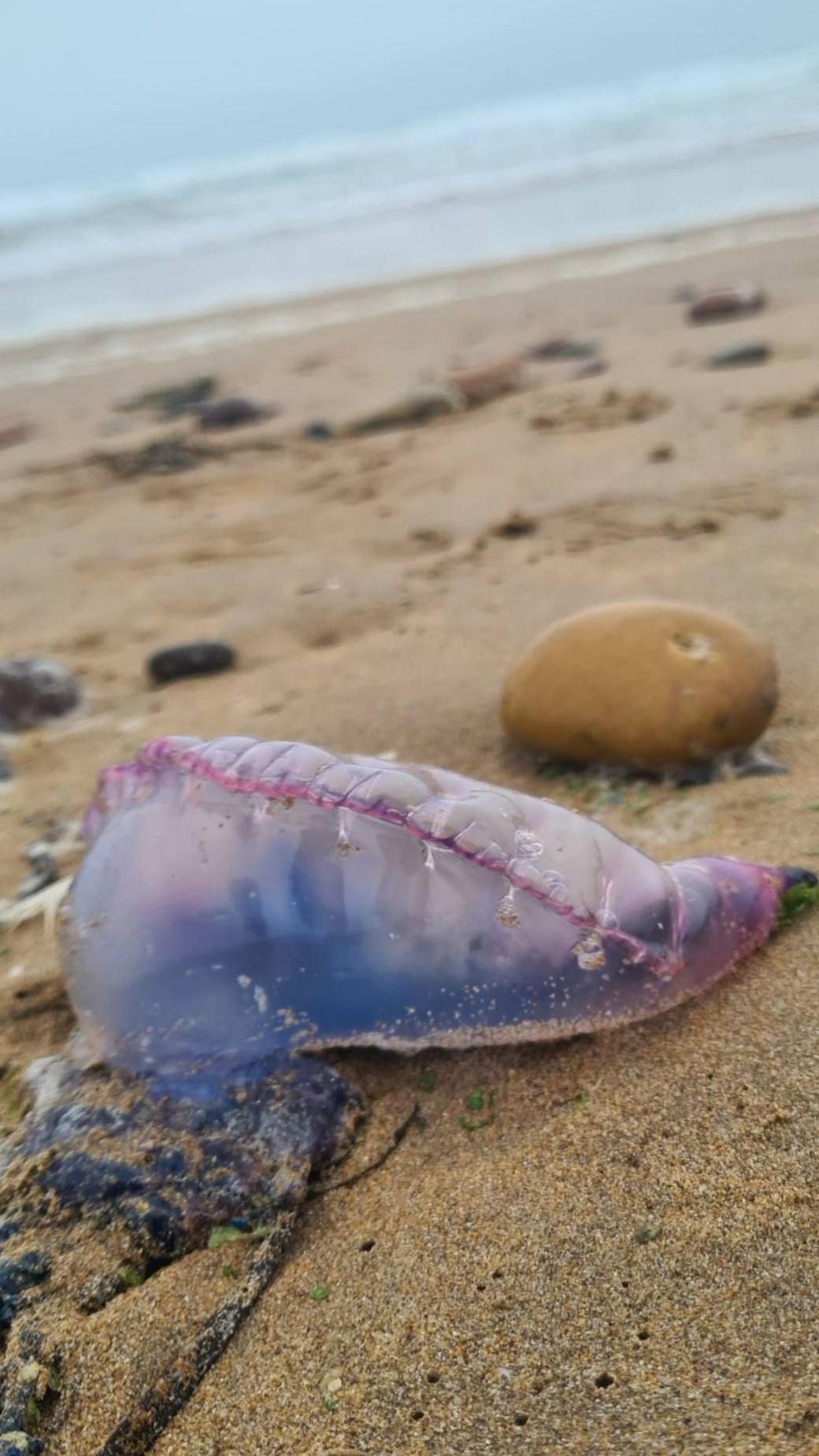
Melissa Brown, who captured this image of a man o' war on Freshwater West, said she made sure she kept her dogs away from it
There were further reported sightings on Porth Trecastell beach, in Pembrokeshire, and Rhosneigr beach on Anglesey.
Rhosneigr Coastguard said the public and dog owners should "avoid touching them due to their extremely painful sting, even when the creature is dead".
"Sightings should be reported to the coastguard, and if stung, severe or lasting pain warrants immediate medical attention."
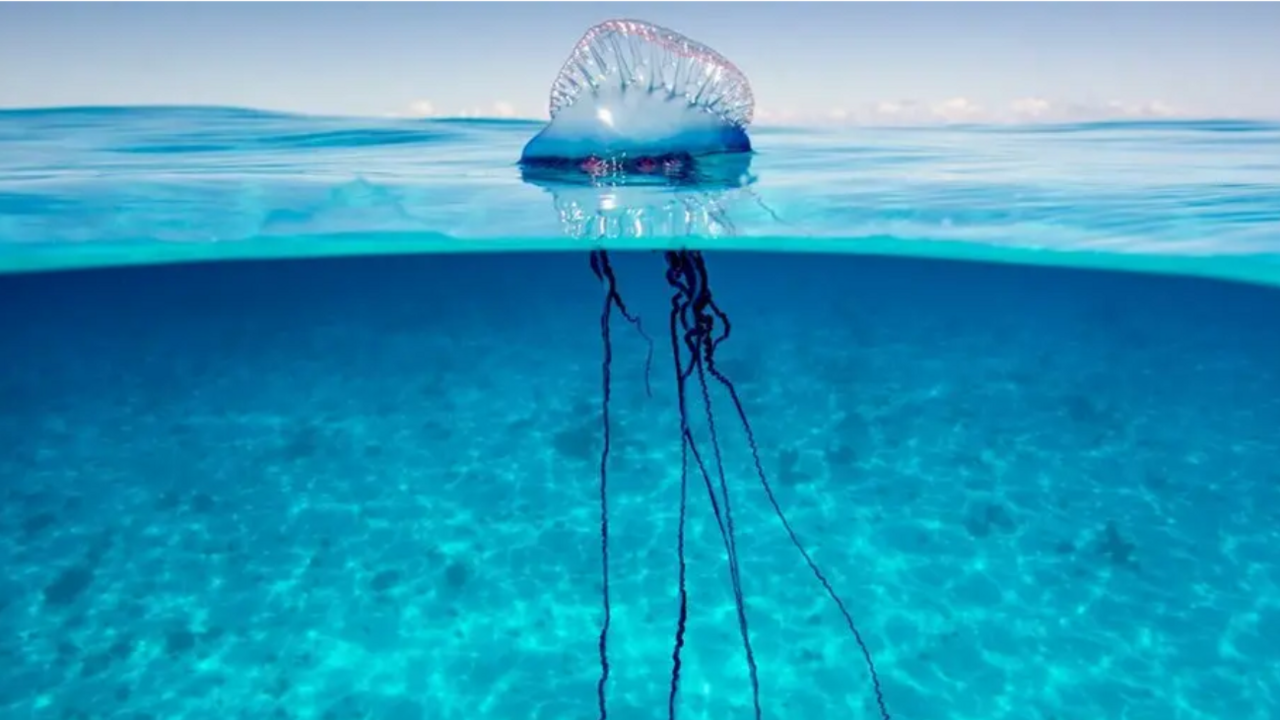
Portugese man o' war drift on the surface of the water, its tentacles spreading as long as 10ft (3m)
Marine biologist, Ruth Chamberlain, owner of Project Jellyfish, said there had been an increase in the number of sightings of the Portugese man o' war in recent years across the UK, partly down to increasingly warmer summers.
"As the sea temperature increases, it's more likely we will see more of these sightings," she said, adding that social media had created more discussion around any sea creature spottings.
Fuelled by climate change, a BBC analysis found that the world's oceans broke temperature records every single day over the year of 2024.
Reaction to any sting varies depending on the person and whether they experience an allergic reaction, Ms Chamberlain advised.
If you are stung, she advised pouring "the hottest water you can bear" over the sting, taking antihistamines, and avoiding mineral water to inflame the sting.
But for the best chance of avoiding a sting at all, wearing water shoes, long sleeves and trousers, or a wet suit will help protect you.
Related topics
- Published6 October 2023
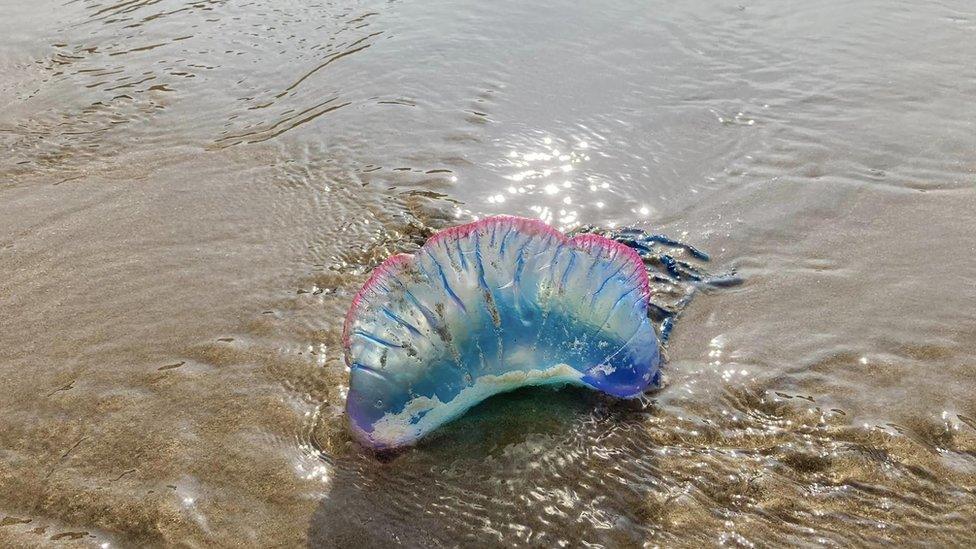
- Published16 September

- Published8 May 2024
